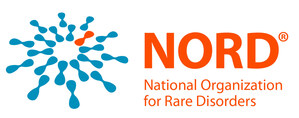WASHINGTON, Oct. 17, 2017 /PRNewswire-USNewswire/ -- Orphan drugs accounted for only 7.9% of total drug sales in the U.S. in 2016, according to a study issued today by the QuintilesIMS Institute. The study, commissioned by the National Organization for Rare Disorders (NORD), analyzed the role of the Orphan Drug Act and orphan drug usage and costs, to address a number of public policy and health care financing issues in the rare disease community.
The major findings of the report are as follows:
- The Orphan Drug Act has been highly successful for 35 years in encouraging the development and approval of orphan drugs. The Food and Drug Administration has approved almost 600 orphan drugs since 1983. It has made possible treatments that have resulted in cost savings in treating many diseases.
- The Orphan Drug Act has not been a significant driver of healthcare spending in the U.S. The volume of prescriptions for orphan drugs is relatively low because of the small patient populations. Orphan drug spending represents a small percentage of total healthcare spending. Of the $460 billion spent on drugs in the U.S. in 2016, only 7.9 percent was for orphan indications of approved drugs.
- The Orphan Drug Act is just as important now as it was in 1983, when it was enacted by the Congress, and while it is worthwhile to evaluate the law to see if any improvements are needed, great care must be taken to assure the original intent of the law, which was to stimulate the development of new orphan drugs.
"As we look at ways to reduce the burden of healthcare costs in the U.S., some people have looked upon orphan drugs as a possible contributing factor," said NORD President and CEO Peter L. Saltonstall. "The QuintilesIMS study provides important new perspective that helps to reinforce the basic value of the Orphan Drug Act and to quantify orphan drug spending within the broader context of total drug sales."
"As our healthcare system evolves and we look at ways to control costs, it's important for these conversations to be data-driven and to reflect the realities of our healthcare spending," Saltonstall said. "As the voice of the rare disease patient community, NORD looks forward to being an integral part of these conversations."
He added: "We are on the verge of a new era in diagnosing and treating all diseases, and the need is especially acute for people with rare diseases. Public policy must keep pace with these changes and provide an environment that is conducive to continued progress."
About 7,000 rare diseases have been identified, affecting 25 to 30 million Americans. Many affect only a few hundred or a few thousand individuals. Rare diseases tend to be chronic, serious and life-threatening. More than 80 percent are believed to be genetic.
The QuintilesIMS Institute report and the NORD white paper were released at the annual NORD Breakthrough Summit attended by almost 700 rare disease community stakeholders in Washington, D.C.
Both the QuintilesIMS Institute report and a NORD white paper on this topic are available on the NORD website at https://rarediseases.org/nord-white-paper-quintilesims-report-download/.
About the National Organization for Rare Disorders (NORD)®
The National Organization for Rare Disorders (NORD)® is the leading independent advocacy organization representing all patients and families affected by rare diseases. NORD is committed to the identification, treatment and cure of the 7,000 rare diseases that affect 30 million Americans, or 1 in every 10 people. NORD began as a small group of patient advocates that formed a coalition to unify and mobilize support to pass the Orphan Drug Act of 1983. For more than 30 years, NORD has led the way in voicing the needs of the rare disease community, driving supportive policies and education, advancing medical research, and providing patient and family services for those who need them most. NORD represents more than 260 disease-specific member organizations and their communities and collaborates with many other organizations in specific causes of importance to the rare disease patient community.
SOURCE National Organization for Rare Disorders (NORD)
Related Links
WANT YOUR COMPANY'S NEWS FEATURED ON PRNEWSWIRE.COM?
Newsrooms &
Influencers
Digital Media
Outlets
Journalists
Opted In






Share this article